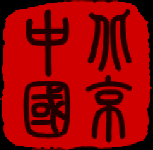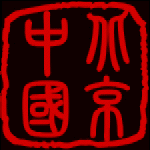A
Brief History of China
Part 3 : People's Republic of China (1949 - present)
After decades of warlord rule,
japanese occupation and a debilitating civil war, the
China the Communist government inherited was bankrupt and
in shambles. Despite the difficulties, Mao's government
made impressive improvements in their early years.
Central to their
political ideology was land reform,
in which land was taken from landlords and redistributed
among the peasant population. Already implemented in Red
Army controlled areas, after liberation it was extended
to the rest of the country.
In the cities, the
Communists steered industrial production toward heavy
industries and formed state-controlled unions. Workers
were promised the "iron rice bowl" of lifetime
employment, housing, health care, pension plans and
education for their children.
By 1953, land reform
was complete and collectivization of land began. By 1958,
agricultural production was unable to keep up with
population increases. Dissatisfied with the slumping
agricultural production and slow pace of
industrialization, Mao turned to mass mobilization to
speed things up. He called upon every man, woman and
child in China to help increase China's industrial and
agricultural output.
The resulting Great Leap Forward during which Mao promised China
would surpass Britain in steel production in 15 years,
and the US in 20, resulted in disaster. Huge cooperatives
replaced small communes, and the infamous backyard steel
furnaces that produced unusable steel, were built in
order to produce vast amounts of steel.
By 1963, the disastrous
effects of the Great Leap Forward, compounded by bad
weather in much of the country, became too obvious to
ignore. The CCP leadership backed away from the idea of
huge collectives and once again gave land back to the
peasants. However, it took some years for the country to
get back on its feet.
Beginning in 1966,
China was once again rocked by revolution. The Cultural Revolution was ultimately the product of
Mao's desire to purge the party of all corrupt cadres and
consolidate his power base. His troops in this revolution
were the Red Guards.
University and middle
school students formed Red Guard units on their campuses.
They were called upon to hunt out all subversive elements
not adhering to Mao Zedong Thought, as his ideology was
known.
Thousands of people -
party cadres, the wealthy, former KMT supporters,
intellectuals, businessmen etc. - were accused of being a
"capitalist" or a "revisionist", even
when their 'crime' was in the past. Often violent
struggle sessions were held against the accused and
confessions extracted. Thousands of party members were
purged and sent to hard labor camps.
In inciting revolution,
Mao hoped to train the younger generation to be
visionaries and trigger revolutionary sentiment among the
older generation who were getting too "soft".
The Red Guards were called upon to carry out campaigns
such as ridding Chinese culture of the Four Olds - old ideas, old customs, old
habits and old culture.
By 1967, the violence
had gotten out of control. Schools and Universities were
shut down and most of the teachers were either in
disgrace or at hard labor camps. In the Red Guards' quest
to destroy the Four Olds, many historic sites had been
ransacked and priceless artefacts destroyed.
The Red Guards had
devolved into gangs fighting each other in the streets.
Each faction claimed to represent the true interpretation
Mao Zedong Thought as quoted in his little red book. The personality cult of Mao
reached its all time high in 1967 - 1968.
Once it became apparent
that the Red Guards were beyond his control, Mao called
in the People's Liberation Army (PLA) to quell the
fighting. Order had to be forcibly restored. With the
majority of schools closed, teachers disgraced and the
Red Guards disillusioned after being told to disband, Mao
sent millions of former Red Guards to the countryside.
Nominally, the students were to be re-educated by the
peasants, the cornerstone of the communist revolution.
However, Mao was, in effect, exiling them now they had
served his purpose.
Although the violent
phase of the Cultural Revolution lasted only until late
1968, the Cultural Revolution did not end until 1976.
Until then, China's citizens were called upon to carry
out campaign after campaign aimed at exposing 'rightist
tendencies' in the Party.
Throughout the 10 years
of the Cultural Revolution thousands of party leaders
were sent into exile or imprisoned. In 1969, Deng XiaoPing was imprisoned and forced to
perform menial labor. He was rehabilitated in 1971.
However, he was again declared a rightist in the final
months of the Cultural Revolution and only regained power
after Mao's death in September 1976.
Although the Red Guards
decried western culture as bourgeois and rightist, and
during the Cultural Revolution western influences were
forbidden, the early 1970s saw a new era of friendship
begin between the United States and China. In 1972, Nixon
paid a state visit to China in the hopes of bettering
relations. It was as a consequence of this visit that the
United States signed an agreement stipulating that they
would recognize the Mainland and not Taiwan as the only
government of China.
The Cultural Revolution
ended finally with Mao's death and the arrest of the Gang of Four in 1976. The Gang of Four, part
of Mao's inner circle led by Mao's wife, Jiang Qing, had
tried to keep the fires of revolution burning in China
and to position themselves as successors to Mao. In 1976,
they were arrested and each eventually sentenced to 20
years in prison.
Once the Gang of Four
had been dealt with, Mao's handpicked successor, Hua
GuoFeng emerged as China's new leader. However, he was
not well received. China's citizens were eager to see a
more moderate leader, rather than one who would blindly
continue Mao's policies and they called for the
reinstatement of Deng XiaoPing.
Once in power, Deng
moved quickly away from Mao's radical policies. Reform
rather than revolution was to be the new path. It was,
however, reform in the economic and not the political
sphere and Deng set out to modernize industry,
agriculture, science and defense.
Deng de-collectivized
the communes and introduced the household responsibility
system. Under this system, farmers were allowed to sell
their surplus crops on the open market. Agricultural
production immediately rose.
In the cities, Deng
opened China's markets to the west. Joint ventures were
formed and competition increased efficiency. The first
half of the 1980s was a time of dramatic economic growth
in China. Western fashions were no longer forbidden -
indeed they were enthusiastically embraced. Students were
allowed to study abroad and intellectuals were encouraged
to exchange ideas with foreign scholars.
Deng's famous words,
for which he was imprisoned during the Cultural
Revolution, were "I don't care if the cat is white
or black as long as it catches mice". This
highlights Deng XiaoPing's pragmatic approach to economic
policy. Market forces were allowed to determine what
goods were produced and western production methods were
experimented with. These policies vastly improved the
economic well-being of many of China's citizens.
Jiang ZeMin, who
succeeded Deng after his death in 1997, continued with
Deng's commitment to reform. The pursuit of a 'market economy with Chinese
characteristics'
seems to be working well for China. China is a huge
market with equally huge economic potential, and has been
growing fast. The state is retreating ever more from
areas of private life. People are now allowed to choose
where they live and work. The private sector now makes up
more than a 1/3 of the economy and growing, and
privatization of state-owned companies continues.
In 1997, China regained
control of Hong
Kong, the former
British colony. Hong Kong has retained a great deal of
autonomy under the 'one
country, two systems'
principle. Early in March 2000, Macau, the former Portuguese colony
was handed back to China.
In 2002, since taking
over as Party General Secretary at the Sixteenth National
Congress of the Communist Party of China, Hu JinTao has appeared to have a more
egalitarian style than his predecessor.
Hu and his premier, Wen JiaBao, proposed to create a 'Harmonious Society' which aims at lessening
inequality and have focused on sectors of the chinese
population that have been left behind by the economic
reforms. They have taken a number of high profile trips
to the poorer areas of China with the stated goal of
understanding these areas better.
Hu Jintao and Wen
Jiabao have attempted to move China away from a policy of
favouring economic growth at all costs towards a more
balanced view of growth that includes factors such as social inequality and environmental impact in decision making.
China enters the 21st
century with a new confidence, with technological
advances including space flight, economic advances
including entry into the World Trade Organization and a
growing interaction with and leadership in the world.
Soon China will host the Olympics
in Beijing and the World
Expo in Shanghai. |



